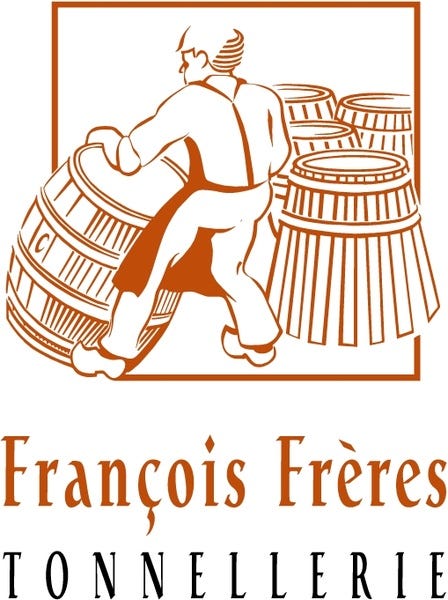“We know how to combine patience and action. That is why time is not only our ally; Time is on our side."
Jérôme François, CEO of TFF Group
Today I would like to touch on a topic that I find particularly interesting, and I believe that Tonnellerie François Frères (TFF Group) is the ideal business to address it from a practical point of view. TFF owns 27 businesses that primarily produce oak barrels to age wine, Scotch whiskey and bourbon. If you like quasi-monopolies in niche markets, with high barriers to entry, switching costs, pricing power, and managed by later generations of the founding family, I think TFF may be of interest to you.
In order for this post not to become too long, I’ve decided to split it into a series of posts addressing the same topic, but focused on different hundred-year-old businesses (or soon to become one) because it seems (at least to me) that they don’t attract as much attention as they should, given how resilient their business models and how compelling their stories are. Future posts will be about Corticeira Amorim, Jungfraubahn, Bakkafrost and some others. This one could very well have been the fourth part of the series, as Vidrala, Robertet or Hermès are perfect examples of what I’m talking about. Subscribers can read my take on all these companies here: Vidrala, Robertet, Hermès.
Capitalism, as we know it, acts as a kind of gravitational force that challenges any business that generates high returns on invested capital over a prolonged period of time. The theory goes that sooner or later some disruptor will be drawn to it like a shark to blood, inevitably driving returns on invested capital down enough to jeopardize the survival of the previously successful business.
In a world where a company’s average lifespan is less than 20 years, there is a country that defies statistics. In Japan, there are more than 33,000 companies that are more than a century old (more than 40% of the century-old companies in the world are located there). About 140 have been around for more than 500 years, and at least 19 are known to have survived for more than a thousand years. While the vast majority of companies have fallen by the wayside, those that have managed to survive crises, wars or other “black swans” have come out stronger and with greater chances of future survival. But what characteristics do these antifragile companies have in common?
Of course, businesses that have existed for decades have competitive advantages in fending off disruptors and weathering dramatic and unpredictable events. But does the Nishiyama Onsen Keiunkan hotel, which is over 2,000 years old, have stronger competitive advantages than Google, with 93% market share? Or the .com domain, which is solely owned by Verisign? Or Amazon’s distribution network? The hotel has no Wi-Fi and, although the setting is beautiful, it’s nothing that tourists cannot find in tens of thousands of other hotels around the world with privileged locations. The secret behind this success has little to do with patents, network effects or switching costs. It's true that many hundred-year-old companies sell products or provide services of cultural importance that strengthen their bond with the community and rely on tradition to avoid business failure, but we often forget that behind every company there are people who steer its destiny. The 52 generations that have run the Nishiyama Onsen Keiunkan for more than two millennia are the main characters in this entrepreneurial feat.
Most of these anti-fragile companies are run by families who aren’t business myopic and think far beyond a couple of years. There’s many like TFF (founded back in 1910) that haven’t grabbed Wall Street's attention because they aren't obsessed with growing just for growth's sake or becoming more profitable every year to maximize earnings per share. Rather, they are focused on defending and reinforcing a legacy so that it can last for decades, if not centuries. The priorities of Jérôme François, CEO and fourth generation of TFF’s founding family, are completely different from those of the average American company’s management team, with a grotesque package of stock options. Incentives are different and, therefore, time horizons are too. The owner has the responsibility of passing the company on to the next generation so that the family business can continue on its course. Neglecting or jeopardizing the business legacy aren’t feasible when responsibility and family pride are involved.




